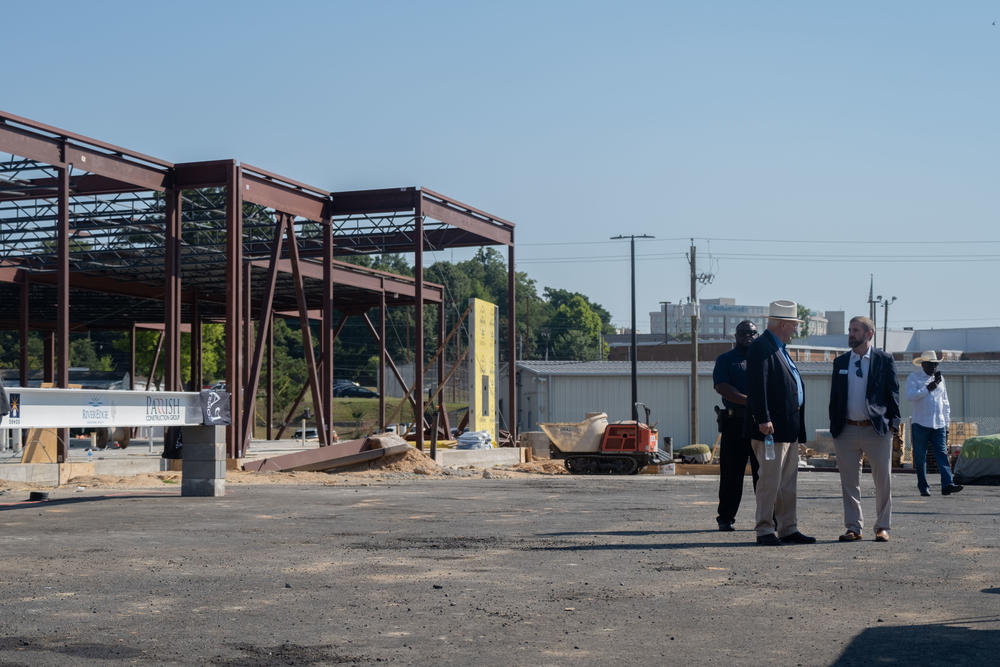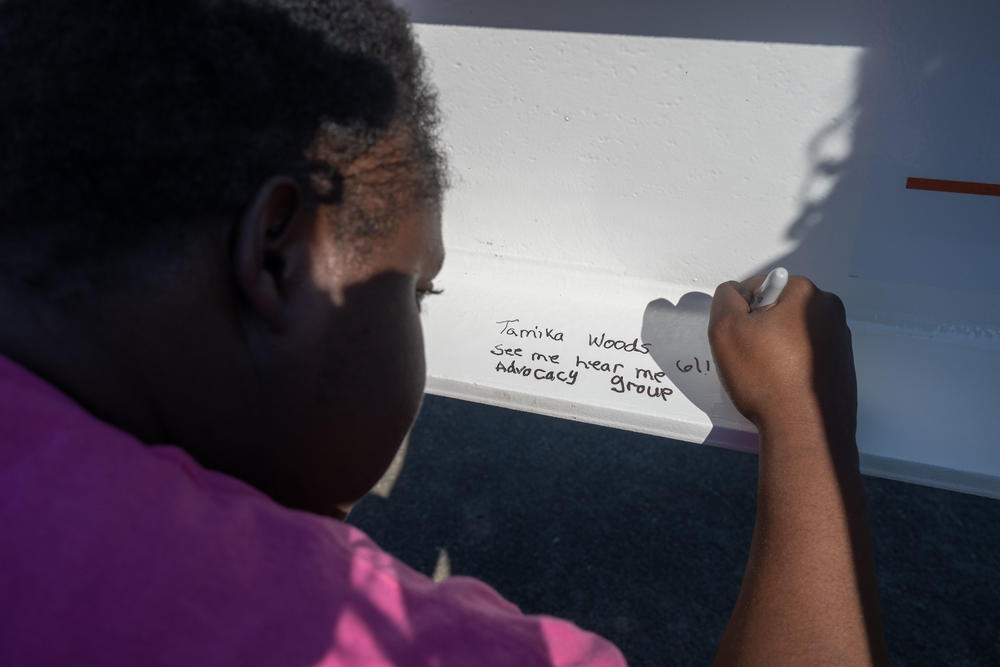
Caption
The Crisis Stabalization Diagnostic Center is being built across the street from the Bibb County Jail on Hazel Street.
Credit: Sofi Gratas/GPB News

LISTEN: At a celebration against a backdrop of construction, Georgia providers said once the facility is built, it will be one step in a new proposed continuum of care. GPB's Sofi Gratas has more.

The Crisis Stabalization Diagnostic Center is being built across the street from the Bibb County Jail on Hazel Street.
Macon will be opening a one-of-a-kind center for people with Intellectual and Developmental Disabilities, or IDD, next year.
Once the facility is built, it will be one step on a new proposed continuum of care. The so-called Crisis Stabilization Diagnostic Center is expected to open next March.
River Edge Behavioral Health and the Georgia Department of Behavioral Health and Developmental Disabilities hosted a celebration in Macon last week against a backdrop of construction. Attendees were encouraged to sign the final structural beam before it was hoisted up and fastened into the structure.
Facing the construction site, Tamika Woods signed her name with a marker.
Woods helps run an advocacy group for people with disabilities, See Me Hear Me, and says the facility will offer more choices for medical care.
“It is making more opportunities for more people with intellectual disabilities to get the help they need and the help they want,” Woods said. “And to be a part of that is very special.”
Because Woods and others with IDD don’t have many options in where they can go for things like dentistry, psychiatry and even physical therapy.

Tamika Woods with See Me Hear Me advocacy group signs the final structural beam on the new center. She hopes the center gives more people with IDD a chance to find medical care.
But here, physicians will work exclusively with them on all those things.
“They're gonna get better care, like you and I would get, and not get brushed off just because they have IDD,” said Jessica Edwards, who works with See Me Hear Me. "They'll actually get quality care that is for them."
Providers from the Mercer University School of Medicine will provide that care through a clinical partnership with DBHDD.
The over $10 million project is being funded by the state, and will also accept people with IDD from emergency rooms in Georgia, who are often without proper care or in crisis.
In many cases, emergency rooms have become a holding place for people with intensive needs who don’t have caregivers or access to other behavioral health support. DBHDD Commissioner Kevin Tanner said the agency struggles to find placement for at least 30 of these people every day.
“Currently we just don't have a good place for someone who's in crisis that has a developmental disability,” Tanner said.
Tanner said physicians at the Crisis Stabilization Diagnostic Center will be trained to both diagnose and refer patients to outside placement, so more people can be routed into community-based services, like housing. With the center in Macon, transport to and from these services will be up to providers of those services, Tanner said.
Part of the state’s investment into a new continuum of care also includes opening two group homes in Augusta where residents get 24-hour nursing care and other assistance.
The Department of Community Health also recently put in a request for approval from the Centers for Medicare and Medicaid for three new models of long-term housing for people with IDD who need intense residential support. Approval would mean the state would get federal reimbursement to provide those services.
Meanwhile, the state is still trying to address a shortage of direct service providers. On top of salary boosts for all state employees, Gov. Brian Kemp approved a nearly $75 million investment to increase rates for providers of IDD health care this year, in an effort to cut down on a waitlist thousands of names long for community-based services paid by Medicaid.
Georgia Health Initiative is a non-partisan, private foundation advancing innovative ideas to help improve the health of Georgians. Learn more at georgiahealthinitiative.org